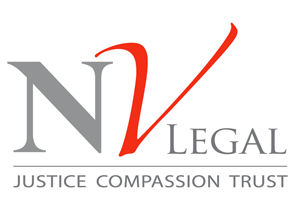Food allergies and restaurants – your rights
Around two million people in the UK have a food allergy. Many have mild reactions to certain foods such as stomach pain, itching, a rash or swelling.
Yet, some cases can lead to anaphylactic shock and even death. There have been several high-profile fatal cases. Those affected had reactions to foods purchased in restaurants or food outlets or were provided with food products without accurate labelling.
CURRENT LAWS
According to the Food Standards Agency, “In the UK, food businesses must inform you under food law if they use any of the 14 allergens as ingredients in the food and drink, they provide. This list has been identified by food law as the most potent and prevalent allergens.
“The 14 allergens are: celery, cereals containing gluten (such as barley and oats), crustaceans (such as prawns, crabs and lobsters), eggs, fish, lupin, milk, molluscs (such as mussels and oysters), mustard, peanuts, sesame, soybeans, sulphur dioxide and sulphites (at a concentration of more than ten parts per million) and tree nuts (such as almonds, hazelnuts, walnuts, Brazil nuts, cashews, pecans, pistachios and macadamia nuts).
“If you are allergic to ingredients not included in the 14 allergens, you should always check the label or ask staff for information about your specific food allergen.”
WHAT TO DO IF YOU HAVE A FOOD ALLERGY
The NHS has produced guidance for anyone with a food allergy. It states:
“Let the staff know – when booking a table at a restaurant, make sure the staff know about any allergies. Ask for a firm guarantee that the specific food will not be in any of the dishes served. The Food Standards Agency (FSA) offers chef cards that provide information about allergies, which you can give to restaurant staff. As well as informing the chef and kitchen staff involved in cooking your food, let waiters and waitresses know so they understand the importance of avoiding cross-contamination when serving you.
“Read the menu carefully and check for hidden ingredients – some food types contain other foods that can trigger allergies, which restaurant staff may have overlooked. Some desserts contain nuts (such as a cheesecake base) and some sauces contain wheat and peanuts.
“Prepare for the worst – it’s a good idea to prepare for any eventuality. Always take anti-allergy medicine with you when eating out, particularly an adrenalin auto-injector. Read more about using an auto-injector on our page about treating food allergies.
“Use what’s known as a taste test in older children – before your child begins to eat, ask them to take a tiny portion of the food and rub it against their lips to see if they experience a tingling or burning sensation. If they do, it suggests that the food will cause them to have an allergic reaction. However, the taste test does not work for all foods, so it should not be used as a substitute for the above advice.”
YOUR RIGHTS
You could claim compensation if you have an allergic reaction. Medical attention should be sought and you should report the reaction to the restaurant, outlet or venue immediately and also keep a record yourself.
In fatal cases, a bereavement award may be applicable and in England, Wales, or Northern Ireland is a set amount. This is currently £15,120 for England and Wales and £15,100 for Northern Ireland.
Amounts increased in 2020 but the government rejected a call for a wider review of bereavement damages. Many believe this figure is still too low.
If you live in Scotland lawyers evaluate cases on an individual basis.
Amounts paid depend on the circumstances of the case. This is a much fairer system according to the Association of Personal Injury Lawyers (APIL).
APIL believes that bereavement damages are too low. It also claims the categories for those receiving compensation are too restrictive.
APIL has been lobbying parliament and believes that damages should be on a case-by-case basis.
HOW TO CLAIM COMPENSATION
NV Legal has a specialist team of solicitors experienced in dealing with fatal accident claims and allergy claims. If you or someone you know has had a reaction to food, contact us for legal advice.
Consultations are FREE of charge. Advice is from qualified solicitors, regulated by the Solicitors Regulation Authority.
Call – 03330 112732
Email – info@nvlegal.co.uk
Website – www.nvlegal.co.uk
Find us on social media – Facebook Twitter LinkedIn
USEFUL LINKS


